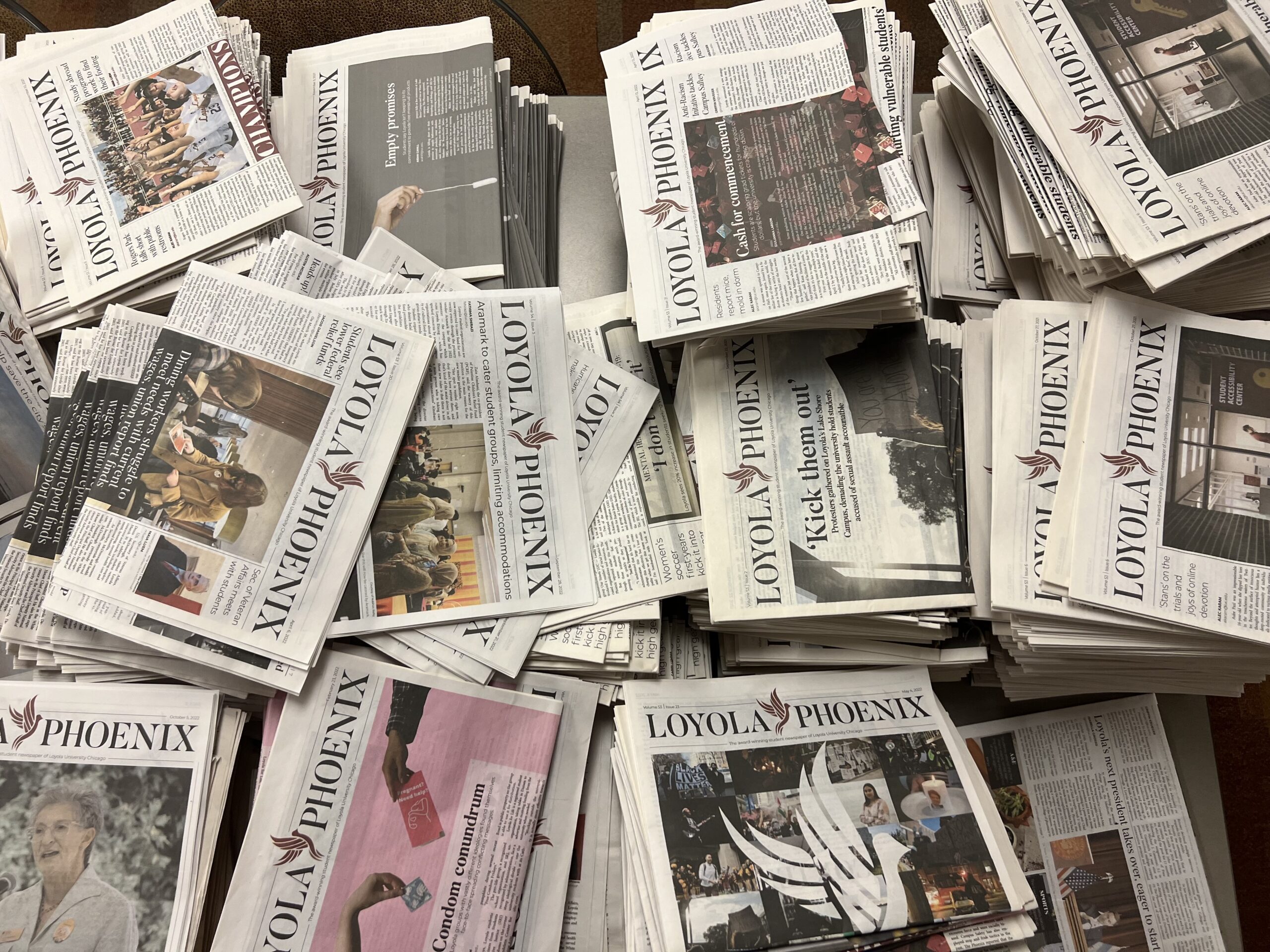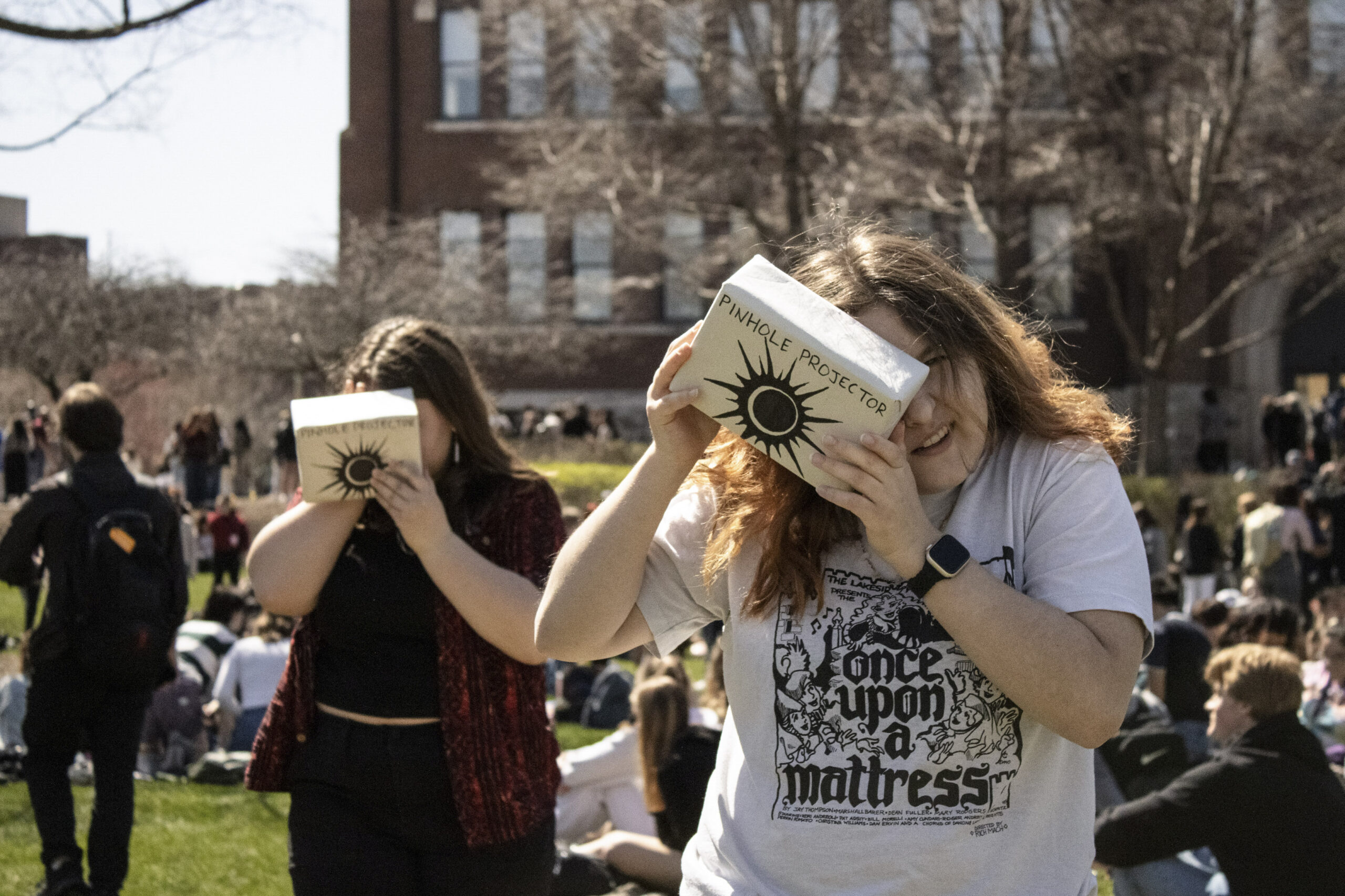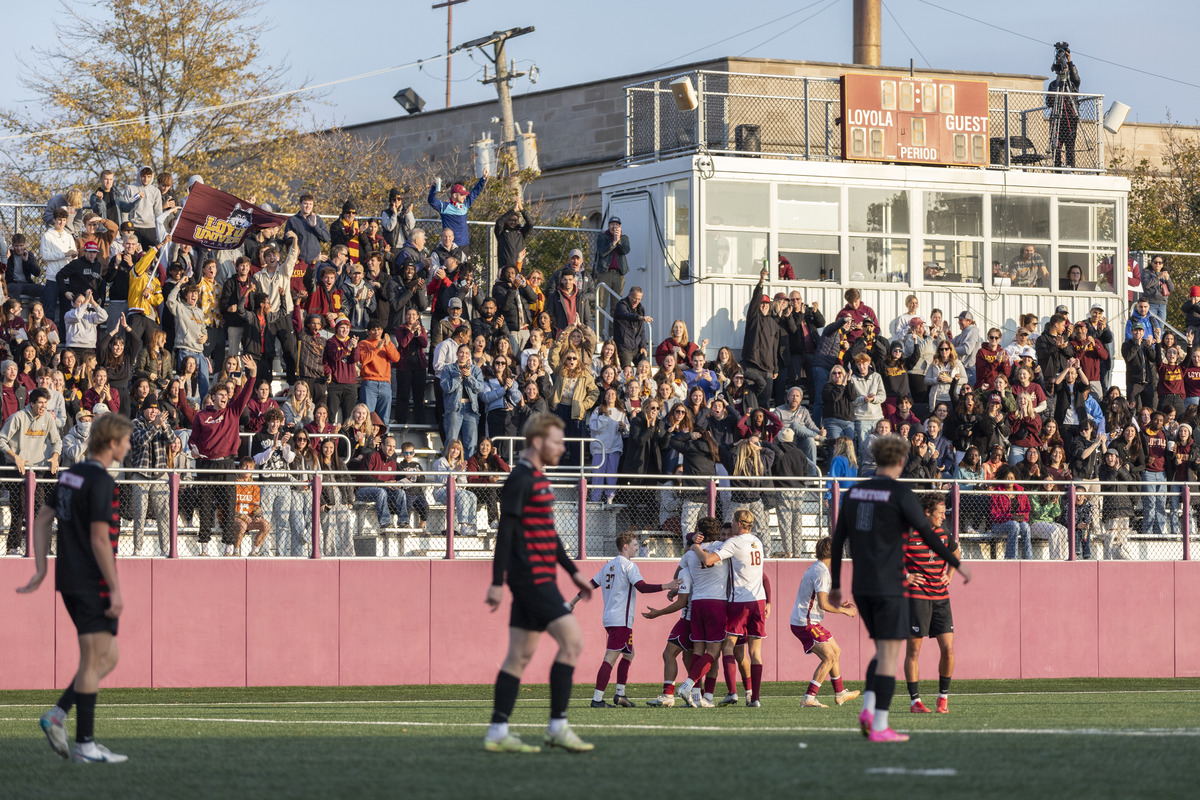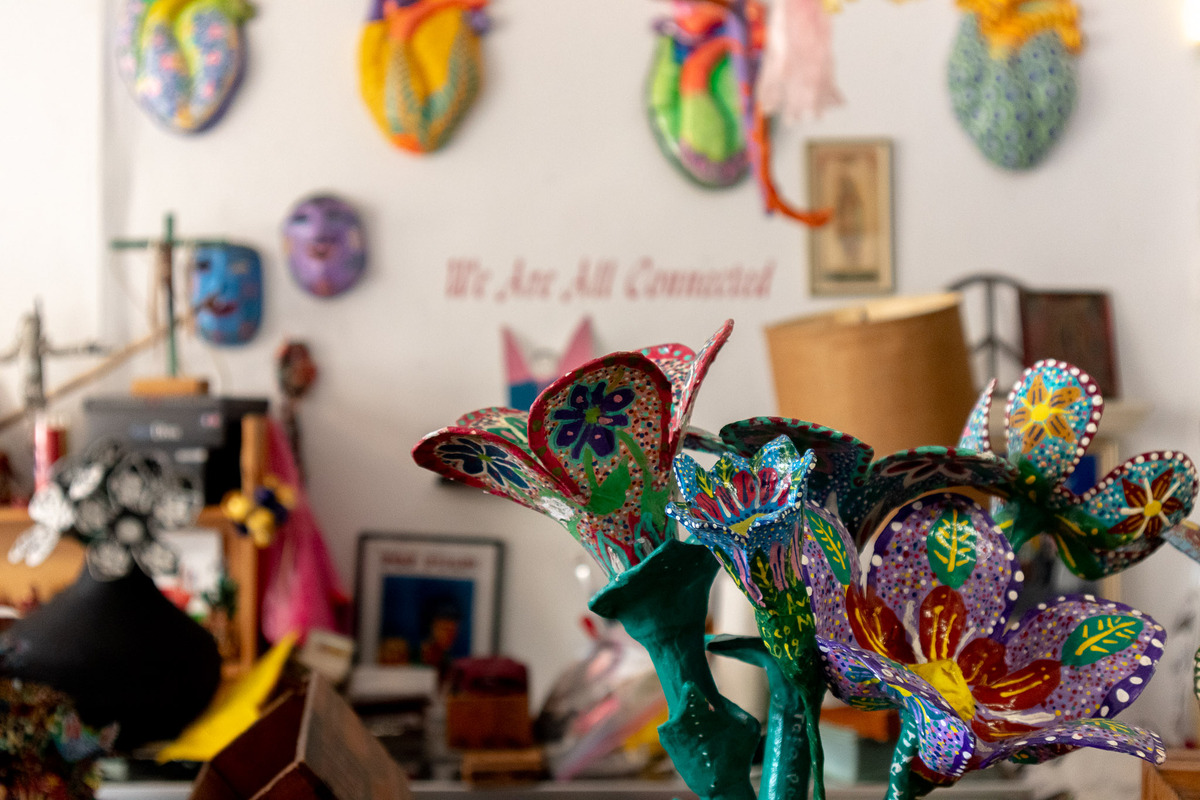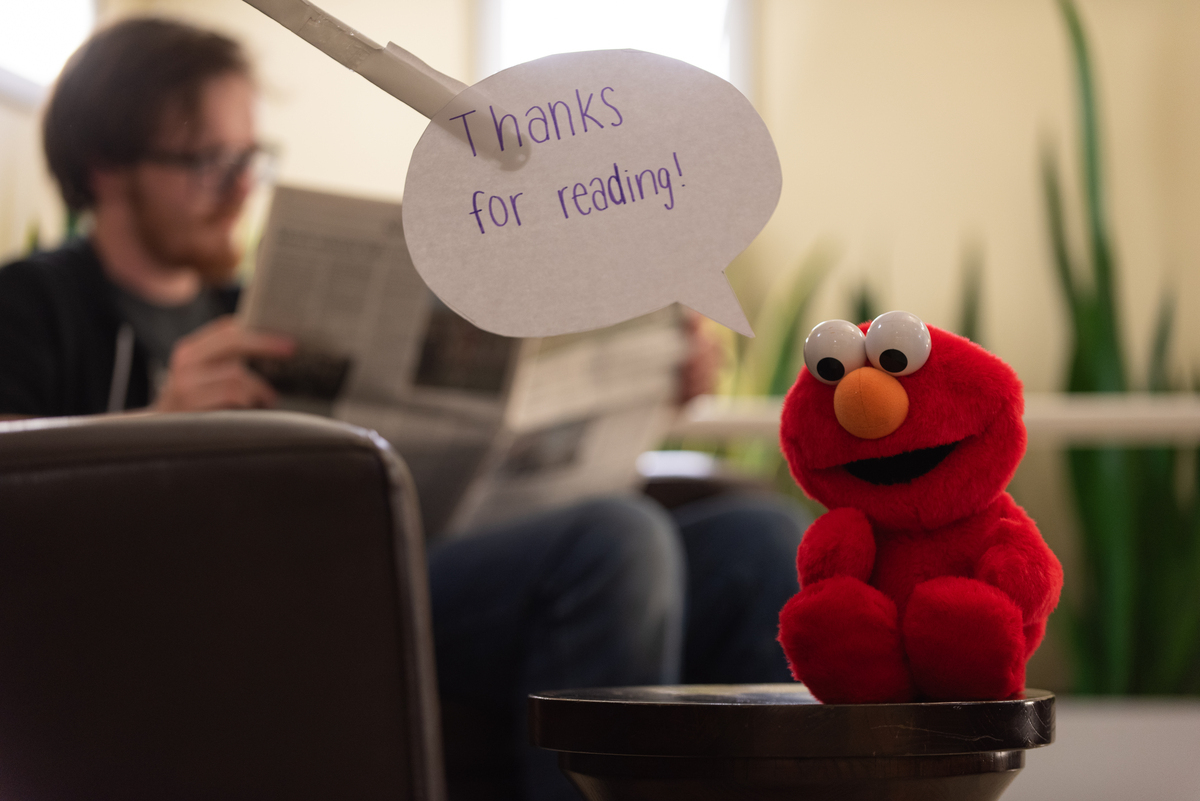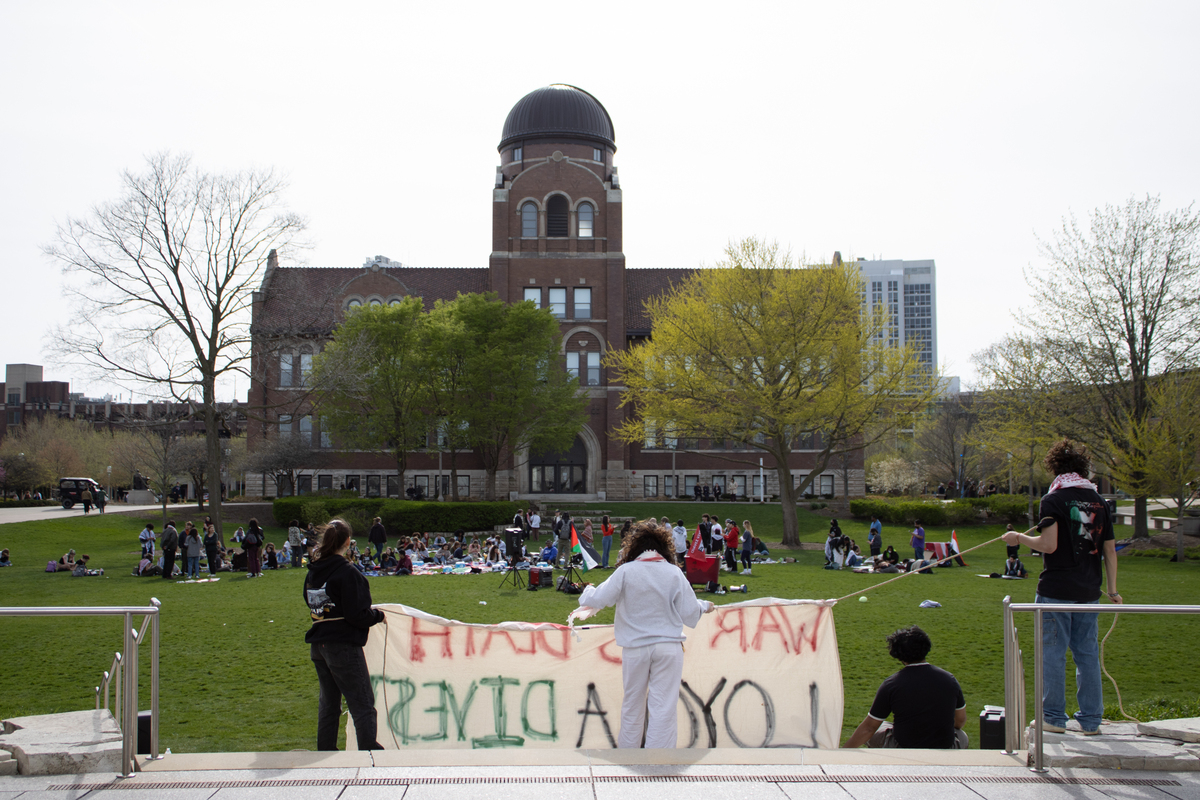The Women and Leadership Archives at Loyola has received a grant of $84,000 from the Illinois History Digital Imaging grant program for the digitalization of the archives associated with Mundelein Women’s College.
Loyola’s Women and Leadership Archives Receives Grant to Digitize Archive Collection

The Women and Leadership Archives (WLA) at Loyola University Chicago has received a grant of $84,000 from Illinois History Digital Imaging (IHDI) for the digitalization of the archives associated with Mundelein Women’s College.
Mundelein Women’s College first opened its doors to students in 1930 as a commuter college, with a bulk of classes being conducted in what is now the Mundelein Performing Arts Center, based on information from the Gannon Center for Women and Leadership.
The WLA documents the history of Mundelein Women’s College, the Catholic women’s college which merged with Loyola in the 90’s, and the history of the surrounding area, according to Emily Reiher, director of the WLA.
The archives have grown in size since they were taken over by the WLA in 1994, three years after the two universities became affiliated, according to Reiher.
The WLA is now housed on the third floor of Piper Hall, formerly used as the library for the Mundelein Women’s College.
“We decided to expand our mission to not just alumni of Mundelein College or former faculty, but also think about the spirit of Mundelein and different areas of collecting focus we could have which would help tell the stories of women’s organizations,” Reiher said.
Despite the archives containing information from more than just the Mundelein Women’s College, the digitization grant from IHDI is focused on the records pertaining to the Catholic women’s college, according to a press release.
Andrew Bullen, the information technology coordinator at the Illinois State Library, said the importance of these records lies in how accessible they are to the public.
“Records and archives are the framework that history is made upon,” Bullen said. “Having these things digitized and available at a computer terminal, wherever that may be, extends their utility to everybody.”
There are more than 4,000 photographs being digitized, as well as 748 documents and 18 scrapbooks according to the Women and Leadership website.
It is mostly graduate students who will work to digitize the archives, according to Reiher. One of these students is Kaylee Morlan, a first-year graduate student in the public history masters program at Loyola, who works at the WLA to transcribe archives from Mundelein Women’s College and make them digitally accessible.
“What I think makes it really important is that the farther you dig into this, the more enriching material you find,” Morlan said. “Being able to have that publicly available means that anyone can come in and look through it.”
Digitization grants are so large because the process is very labor intensive and time consuming, according to Bullen. The photos must not only be scanned, but also be paired with information which provides context to the viewer. This is known as metadata, which gives details such as the title, date, description or anything else which is pertinent to the photo, Bullen said.
“That gets expensive,” Bullen said. “You are paying for somebody’s time to figure out what’s going on, or to take existing data and translate it into another form.”
Despite how tedious the work is, Bullen still said it is worth it for the increased number of people who will have access to it once the digitization is complete.
The grant’s area of focus was underrepresented communities, according to Bullen. The WLA was granted this money because of the large role the Mundelein Women’s College played in the growth of Chicago, and the work which the archives do to represent female organizations in the surrounding area, according to Bullen.
“The importance of Mundelein in Chicago women’s education is fundamental if you are hoping to study any kind of history of education, feminism, gender studies, religous education or the development of the North Side,” Bullen said.
The college was founded by the Sisters of Charity of the Blessed Virgin Mary (BVMs). For the 60 years following its opening in 1930, the women’s college welcomed a diverse student population, including many first generation college students. When Mundelein Women’s College only had about 200 full-time students enrolled in 1991, they were forced to affiliate with Loyola University, according to the Gannon Center for Women and Leadership.
When the schools became affiliated, the diversity levels of Loyola increased by 15%, Schmidt, who was the dean of students at the college when it merged with Loyola, told the Phoenix.
Sister Cecelia Bodman was the founder of the Mundelein Women’s College Archives. As a founding member, Bodman communicated with various departments within the university to obtain documents for the records, according to Sister Jean. Bodman has since passed away according to
Gabrielle Buckley, director of the Gannon Center for Women and Leadership, is an alumni of Mundelein Women’s College, having graduated in 1978. She said both her mother and her aunts attended the college.
“Mundelein brought a lot of really strong programs to Loyola that it did not have before,” Buckley said. “We really enhanced the educational experience at Loyola with the affiliation.”
Buckley said one example of a department added to Loyola’s curriculum was the fine arts program, now housed in the Mundelein Center for Fine and Performing Arts, according to the Department of Fine and Performing Arts.
Buckley also said her three uncles went to Loyola, and her grandfather went to Loyola Law School, so she and her family have a “deep history with both institutions.”
“I think one thing that is important to remember about Mundelein and why this project is important to Illinois is that Mundelein is really a huge part of the fabric of Chicago,” Buckley said. “When you talk to someone and you mention Mundelein College, you would be amazed at how many people say ‘Oh my grandmother went there,’ or ‘My aunt went there.’ It’s a point of pride for many people.”
The digitized versions of the Mundelein Women’s College records are expected to be available online at the Illinois Digital Archives website by spring of 2023.
Featured image courtesy of The Women and Leadership Archives



